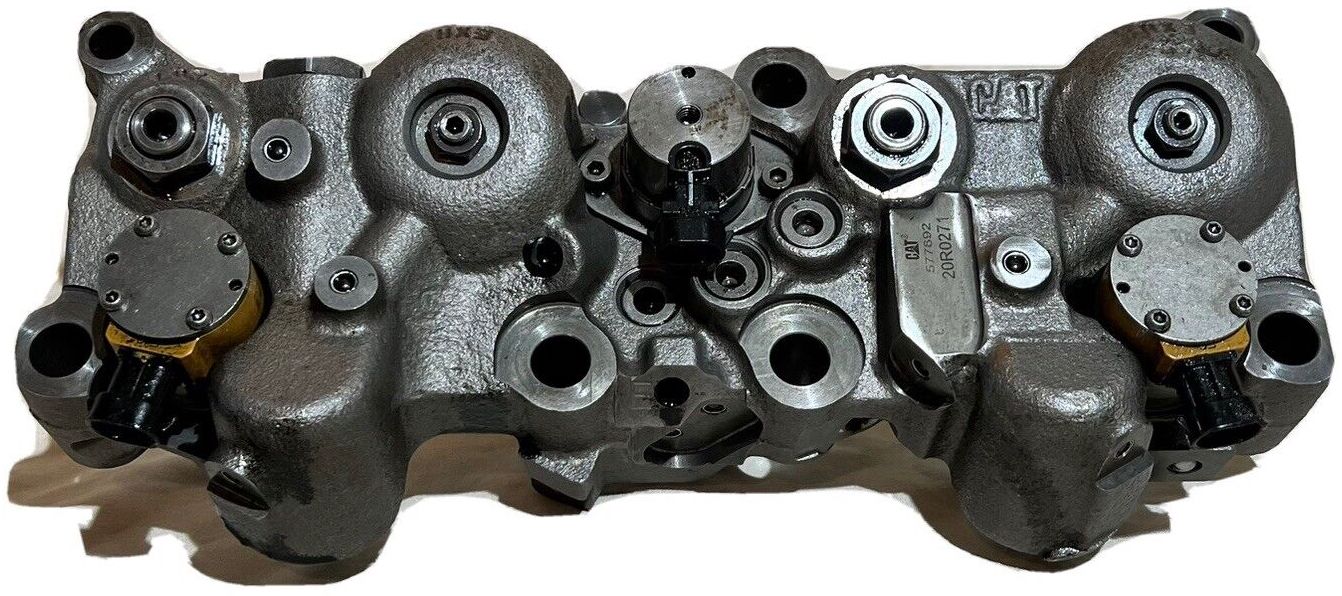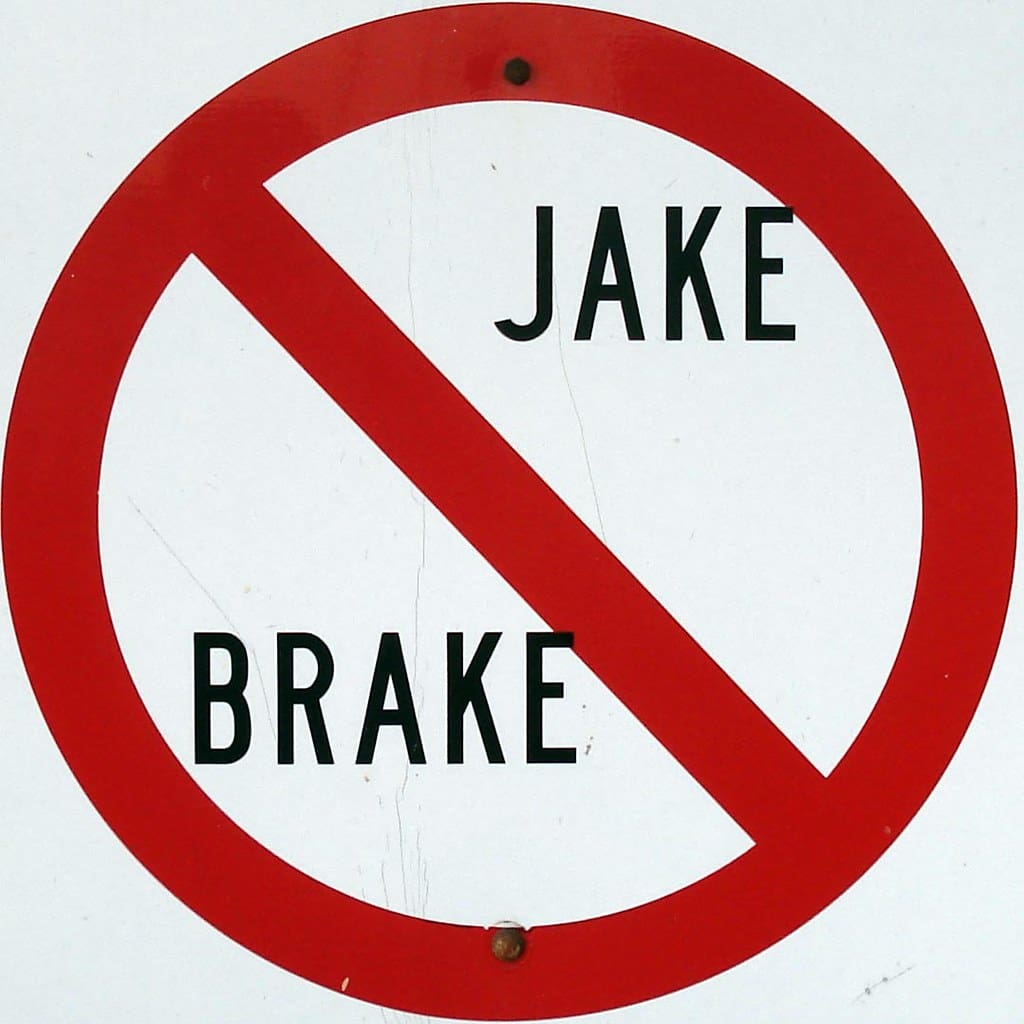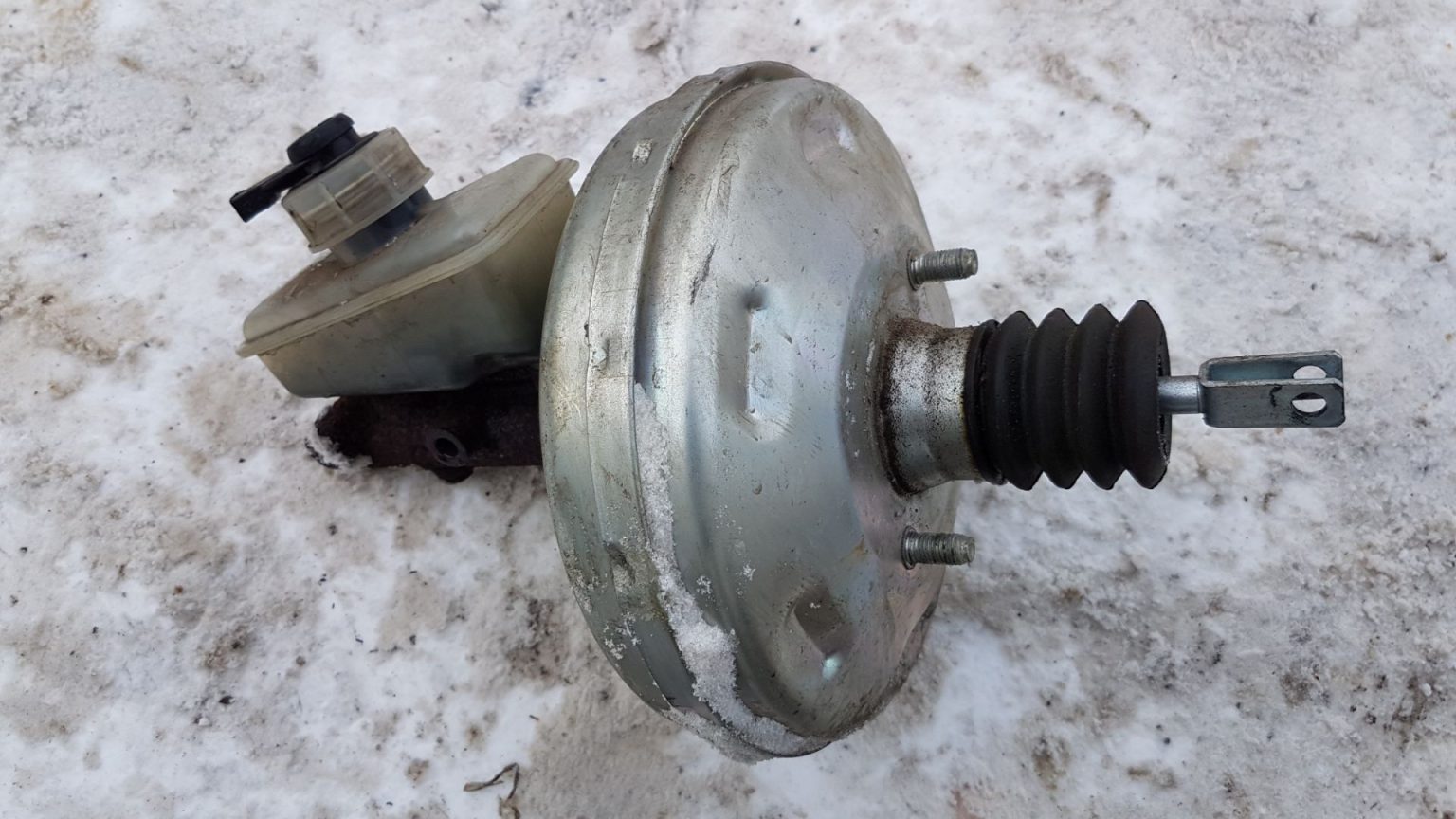Best Of The Best Info About Is It Bad To Use Jake Brake

Why Use A Jake Brake? Engine Brake Explained YouTube
The Rumble of the Road
1. What Exactly is a Jake Brake Anyway?
Ever been near a big rig truck and heard that distinctive "BRAAAP" sound as it slows down? That, my friends, is likely the work of a Jake Brake, formally known as a compression release engine brake. It's a clever device that uses the engine itself to help slow the vehicle, saving wear and tear on the regular brakes. Think of it as an engine's built-in speed bump creator. Instead of fuel igniting in the cylinder, the Jake Brake opens the exhaust valves near the top of the compression stroke, releasing the compressed air. This prevents the air from acting like a spring and pushing the piston back down, effectively robbing the engine of its power and thus slowing the truck.
Imagine trying to push a swing really high, then suddenly letting all the air out of your lungs right before it reaches its peak. The swing wouldn't get nearly as far, would it? Same principle with the Jake Brake, just on a much larger, louder, and more mechanical scale.
So, it's not actually braking in the traditional sense, like applying friction to the wheels. It's more like an engine-powered parking brake for slowing down gradually. This is particularly useful for maintaining a safe speed on long downhill stretches, where repeated use of the regular brakes could cause them to overheat and fail — a very, very bad scenario.
And let's face it, that sound is kind of iconic, isn't it? A bit like a dragon clearing its throat before a big fire-breathing session. It tells you a serious piece of machinery is doing some serious work, even if it does occasionally rattle the windows.

What Are Jake Brakes And How Do You Use Them? EBay Motors Blog
When Does the "BRAAAP" Become a Problem?
2. The Noise Factor
Okay, here's where the "is it bad?" question comes into play. While that distinctive Jake Brake sound might be music to a trucker's ears, it can be downright annoying to anyone living or working nearby, especially in residential areas or at night. Imagine trying to sleep and being constantly serenaded by a chorus of rumbling trucks. Not exactly conducive to a good night's rest, right?
That's why many cities and towns have ordinances restricting or prohibiting the use of Jake Brakes within their limits, particularly in residential zones or during certain hours. These restrictions are often indicated by signs that say something like "No Engine Braking" or "Jake Brakes Prohibited." Ignoring these signs can result in a hefty fine, and rightly so. Nobody wants to be kept awake all night by unnecessary noise. Think of it as vehicular consideration.
The key point is responsible use. There are situations where using a Jake Brake is absolutely essential for safety, such as on a steep grade where regular brakes might overheat. But using it unnecessarily in a quiet neighborhood just to show off (or because you're too lazy to use the regular brakes properly) is a big no-no. It's all about being mindful of the impact you're having on others.
And let's be honest, sometimes drivers get a little enthusiastic with the Jake Brake. A quick tap to maintain speed is one thing, but repeatedly cycling it on and off for maximum noise is just plain inconsiderate. It's like revving your motorcycle engine at 3 AM outside someone's bedroom window. Sure, you can do it, but should you?

Jake Brake Vs Exhaust Difference And Comparison
The "Jake Brake"
3. Understanding the Safety Benefits of Engine Braking
Despite the potential noise issues, it's crucial to acknowledge the significant safety benefits of Jake Brakes, especially for large commercial vehicles. As mentioned earlier, they help reduce wear and tear on the regular brakes, preventing them from overheating and potentially failing, particularly on long downhill stretches. This is a huge deal when you're talking about a fully loaded semi-truck barreling down a mountain pass.
Think of it this way: the Jake Brake is like a backup safety net for the regular brakes. It provides an extra layer of stopping power, giving the driver more control and reducing the risk of a runaway truck. In situations where a split-second decision can mean the difference between a safe stop and a major accident, that extra stopping power can be invaluable.
Moreover, using a Jake Brake can also improve fuel efficiency. By relying on engine braking instead of constantly applying the regular brakes, drivers can conserve fuel and reduce emissions. It's a win-win situation: safer roads and a greener planet (or at least a slightly less brown one). This is particularly important for companies that operate large fleets of trucks.
However, it is paramount to remember that road conditions or weather might effect the usage of Jake brake. If the road slippery or raining, using Jake Brake may cause the vehicle losing control because the driver only control the brake to the back wheels.

So, Is it "Bad"? It Depends.
4. Context is King
The answer to the question "Is it bad to use a Jake Brake?" is a resounding "it depends." There's no simple yes or no answer. It all boils down to context, location, and consideration for others. Using a Jake Brake responsibly, in situations where it's necessary for safety and where noise restrictions aren't in place, is perfectly acceptable, even beneficial.
However, using it unnecessarily in residential areas or in violation of local ordinances is not only inconsiderate but also potentially illegal. It's a matter of weighing the safety benefits against the potential noise pollution and making a responsible decision based on the specific circumstances. A good driver will always be aware of their surroundings and adjust their driving accordingly. This is the core skill needed to decide whether to use the Jake Brake.
Consider this: would you blast loud music at 3 AM in a hospital? Probably not. The same principle applies to Jake Brakes. Think about the impact you're having on those around you and act accordingly. A little common sense goes a long way. The right approach can have profound impact to the society.
Ultimately, responsible Jake Brake use is about being a good neighbor and a safe driver. It's about understanding the benefits and drawbacks of this powerful tool and using it wisely. It's about finding that sweet spot where safety and consideration coexist in harmony. It is the fine balance we should strive for.

The Future of "BRAAAP"
5. Innovations Aimed at Reducing Jake Brake Noise
The good news is that engineers are constantly working on ways to make Jake Brakes quieter without sacrificing their safety benefits. One approach involves using more advanced muffler designs that can effectively dampen the noise without reducing the braking power. These new mufflers utilize advanced sound-absorbing materials and sophisticated internal baffling to minimize the sound output of the Jake Brake.
Another avenue of research focuses on developing alternative braking systems that can provide similar levels of stopping power with less noise. These include electric retarders and hydraulic braking systems that offer smoother and quieter deceleration. While these technologies are still relatively new and expensive, they hold promise for the future of truck braking.
In the meantime, driver training and education play a crucial role in promoting responsible Jake Brake use. By teaching drivers about the importance of noise reduction and the proper techniques for using Jake Brakes in different situations, we can help minimize the negative impacts of this technology. It's all about fostering a culture of responsible driving within the trucking industry.
So, while the "BRAAAP" may be here to stay for a while, there's hope that it will become a bit more subdued in the future. With continued innovation and a focus on responsible use, we can strive for a world where trucks can safely slow down without disturbing the peace.

Frequently Asked Questions (FAQs) About Jake Brakes
6. Your Burning Questions Answered
Here are some common questions people have about Jake Brakes:
7. Q
A: You'll likely get a ticket! Fines for violating Jake Brake ordinances can vary depending on the location, but they can be quite substantial. It's always best to pay attention to the signs and avoid using your Jake Brake in restricted areas.
8. Q
A: While they're most common on large commercial trucks, Jake Brakes can also be found on some buses and other heavy vehicles. The principle is the same: using the engine to help slow the vehicle down.
9. Q
A: Not necessarily. While it does put additional stress on the engine components, a properly maintained Jake Brake can actually extend the life of the regular brakes. The key is to use it correctly and follow the manufacturer's recommendations.
10. Q
A: The "Jake" in Jake Brake comes from Jacobs Vehicle Systems, the company that invented the compression release engine brake. It's a catchy name, and it stuck!